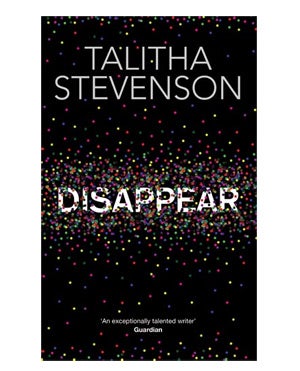Disappear, By Talitha Stevenson
It's crunch time for the middle class

The impact of the global recession on a once-golden couple is analysed in Talitha Stevenson's prescient novel about the perils of "making money out of money". As in any respectable credit-crunch tale, the collapsing economy is presented as a symptom of a more deep-seated malaise.
Young marrieds Charlie and Leila Bell appear to live a charmed life. Charlie is a good-looking hedge-fund manager, Leila does up flats. But with the electronic markets calling for their full-time attention, they forget to invest in the things that count. On a rare holiday, Leila catches her husband in a poolside clinch with another woman. When next we meet she has moved out of the marital home and into her sister Kate's council flat, in Bayswater.
A writer with a reputation for worldly stories of entitled players, Stevenson widens her social canvas here. The sisters, estranged for over seven years, have scores to settle. Kate is a recovering alcoholic and Leila's unexpected appearance revives memories of a problematic childhood. Their relationship intensifies when Leila takes a job beside her sister at a drop-in centre for drug-addicted teens.
Leila, much like her creator, is on a quest. What starts out as an insider satire of pre-crash excess becomes a shouty drama about responsible living. Stevenson has all the material for a biting morality tale but with little crossover between the hedge-funders and the have-nots, the reader is cut adrift. By the time Leila is forced to choose between a dishy youth worker and her newly shriven husband, we have almost forgotten who and what Charlie represents.
While the drawstrings of the plot may not tie up, scenes and episodes are memorably executed. Stevenson's characters – from jaded socialites to seasoned social workers – have psychological depth and never conform to type. Although she has a lot of fun trying to explain what a hedge fund is – its power lies in its mystery – the novel is a reminder that people, like banks, can never be too big to hit rock bottom.
Join our commenting forum
Join thought-provoking conversations, follow other Independent readers and see their replies
Comments
Bookmark popover
Removed from bookmarks